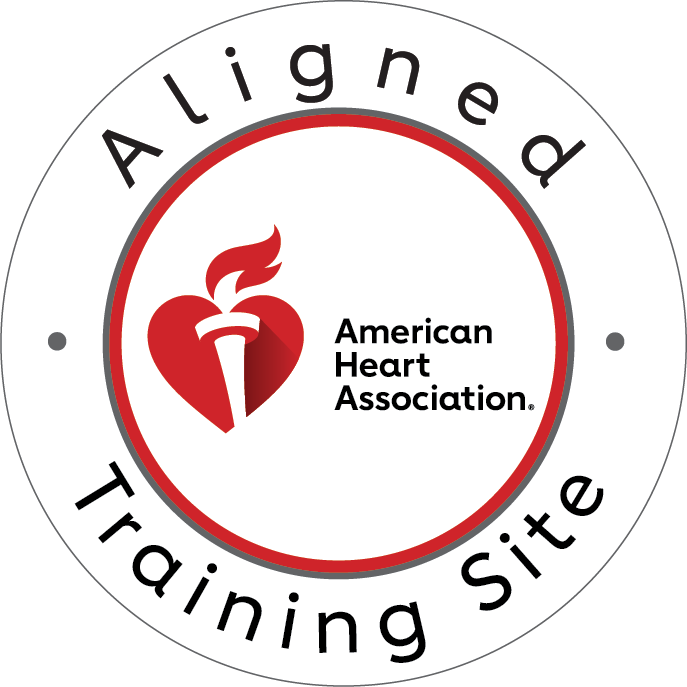CPR, or Cardio-Pulmonary Resuscitation, stands as one of the most critical skills a person can possess in a life-threatening situation. It bridges the gap between an emergency and potential survival, offering a lifeline when every second counts. At the forefront of CPR training stands the American Heart Association (AHA), renowned for its commitment to ensuring individuals possess the necessary skills to respond effectively in emergencies.
Within Cincinnati, Ohio, CPR Cincinnati emerges as a beacon of CPR training excellence, aligning with the AHA’s mission to equip individuals with lifesaving abilities. Offering a range of courses, including Basic Life Support (BLS) for Healthcare Providers, Advanced Cardiovascular Life Support (ACLS), Pediatric Advanced Life Support (PALS), and CPR and First Aid, CPR Cincinnati holds the distinction of being a trusted AHA training site.
Understanding AHA CPR Certification
Before delving into the specifics of how long AHA CPR certification lasts, it’s essential to understand what AHA CPR certification entails and its significance in the realm of lifesaving skills.
The American Heart Association, a globally recognized authority in cardiovascular care and emergency cardiovascular care training, sets the gold standard for CPR certification. AHA CPR certification signifies that an individual has undergone comprehensive training in CPR techniques and protocols established by the AHA. This certification is not only a testament to one’s proficiency in performing CPR but also a validation of one’s commitment to being prepared to respond effectively in emergencies.
AHA CPR certification courses offered by CPR Cincinnati cover a wide spectrum of scenarios, from basic life support for healthcare providers to advanced cardiac life support for medical professionals. These courses equip participants with the necessary knowledge and skills to assess emergencies, initiate prompt CPR interventions, and use automated external defibrillators (AEDs).
In addition to CPR techniques, AHA CPR certification courses often include training in recognizing signs of cardiac arrest, providing rescue breaths and chest compressions, and coordinating efforts with emergency medical services. By adhering to AHA guidelines and standards, CPR Cincinnati ensures that participants receive training that aligns with the latest advancements in resuscitation science, maximizing their preparedness to respond to cardiac emergencies effectively.
Exploring the Duration of AHA CPR Certification
Now that we’ve established the importance and scope of AHA CPR certification, let’s turn our attention to the duration of certification. One of the most common questions among individuals seeking CPR training is, “How long does AHA CPR certification last?”
Typically, the duration of AHA CPR certification varies depending on several factors, including the specific course taken and any additional certifications obtained. However, it’s essential to understand that CPR certification isn’t a one-time achievement but a commitment to ongoing education and skill maintenance.
For most individuals, AHA CPR certification is valid for two years from the date of completion of the course. During this time, certified individuals are considered proficient in the CPR techniques and protocols taught during the training. However, it’s crucial to note that CPR certification doesn’t confer immunity to changes in guidelines or advancements in resuscitation science.
As part of its commitment to excellence and continuous improvement, the AHA regularly updates its CPR guidelines and training materials based on the latest research and clinical evidence. These updates may include revisions to CPR techniques, changes in recommended compression-to-ventilation ratios, or updates to algorithms for managing cardiac arrest.
In light of these updates, certified individuals must stay informed about changes to CPR guidelines and undergo periodic refresher training to ensure their skills remain current and effective. Failure to renew CPR certification promptly may not only compromise one’s ability to respond effectively in emergencies but also lead to non-compliance with regulatory requirements for certain professions.
Importance of Renewal
As we’ve discussed, AHA CPR certification isn’t a one-time achievement but a commitment to ongoing education and skill maintenance. Therefore, understanding the importance of CPR certification renewal is crucial for ensuring readiness and competence in responding to emergencies.
One of the primary reasons for CPR certification renewal is to stay abreast of updates and changes in CPR guidelines and techniques. As mentioned earlier, the AHA periodically updates its CPR guidelines based on the latest research and clinical evidence. These updates may introduce new protocols, refine existing techniques, or modify recommended practices to optimize outcomes in cardiac emergencies.
By renewing CPR certification regularly, individuals demonstrate their dedication to staying current with the latest advancements in resuscitation science. This ensures that they’re equipped with the most effective tools and strategies for responding to cardiac emergencies, thereby maximizing the chances of survival for victims of cardiac arrest.
Additionally, CPR certification renewal serves as a means of reinforcing and refreshing CPR skills and knowledge. Over time, individuals may experience a decline in proficiency if they don’t actively practice and maintain their CPR skills. Renewal courses provide an opportunity to review and reinforce essential concepts, practice hands-on skills, and receive feedback from qualified instructors.
Furthermore, CPR certification renewal is often a requirement for certain professions and industries. Healthcare providers, first responders, lifeguards, and childcare providers are just a few examples of individuals who may be required to maintain current CPR certification as part of their job requirements or licensure.
Failure to renew CPR certification promptly may have serious consequences, including loss of certification status, disciplinary action, or inability to perform job duties that require CPR certification. Moreover, individuals who allow their CPR certification to lapse may find themselves ill-prepared to respond effectively in emergencies, potentially jeopardizing the lives of those in need of immediate assistance.
CPR Cincinnati’s Approach to Certification Renewal
CPR Cincinnati understands the importance of CPR certification renewal and is committed to supporting individuals in maintaining their lifesaving skills. As an AHA training site, CPR Cincinnati offers convenient and comprehensive renewal courses designed to accommodate busy schedules while ensuring high-quality training.
Their renewal courses are tailored to provide participants with the latest updates in CPR guidelines and techniques, ensuring that certified individuals remain current with the most effective practices in resuscitation science. Led by experienced instructors, these courses offer hands-on training and practical exercises to reinforce essential skills and boost confidence in responding to emergencies.
CPR Cincinnati’s renewal courses are structured to be engaging, interactive, and informative, catering to the diverse learning needs of participants. Whether you’re a healthcare professional seeking to renew your BLS certification or a layperson looking to refresh your CPR skills, CPR Cincinnati has a course suited to your needs.
Moreover, CPR Cincinnati understands that maintaining CPR certification shouldn’t be a burden but rather a seamless and hassle-free process. That’s why they offer flexible scheduling options, including evening and weekend classes, to accommodate busy lifestyles and work schedules. With multiple course dates and locations available, individuals can easily find a renewal course that fits their needs and preferences.
In addition to renewal courses, CPR Cincinnati provides ongoing support and resources to help certified individuals stay prepared and confident in their lifesaving abilities. From online refresher modules to CPR practice sessions, they offer a variety of tools and opportunities for continued skill development and reinforcement.
Tips for Maintaining Certification
Now that we’ve explored CPR Cincinnati’s approach to certification renewal, let’s delve into some practical tips for individuals to stay on top of their CPR certification and ensure readiness to respond in emergencies:
Stay Informed: Keep yourself updated on the latest CPR guidelines and techniques issued by the American Heart Association. Follow AHA publications, attend seminars or webinars, and engage in continuing education opportunities to stay abreast of changes in resuscitation science.
Practice Regularly: Practice makes perfect, especially when it comes to lifesaving skills like CPR. Set aside time for regular CPR practice sessions to reinforce your skills and maintain muscle memory. Consider practicing with a CPR manikin or attending hands-on workshops to simulate real-life scenarios.
Seek Feedback: Don’t hesitate to seek feedback from qualified instructors or healthcare professionals on your CPR technique. Constructive feedback can help identify areas for improvement and ensure that you’re performing CPR correctly and effectively.
Review Training Materials: Take time to review CPR training materials, including manuals, videos, and online resources provided by CPR Cincinnati or the American Heart Association. Refresh your memory on key concepts, algorithms, and steps in performing CPR to enhance your confidence and competence.
Attend Refresher Courses: Consider attending CPR refresher courses offered by CPR Cincinnati or other AHA training sites. Refresher courses provide an opportunity to review essential CPR skills, receive updates on guidelines, and practice hands-on techniques under the guidance of experienced instructors.
Stay Prepared: Keep your CPR certification card and any relevant documentation readily accessible in case of emergencies or professional requirements. Ensure that your certification remains valid and up-to-date by marking the expiration date on your calendar and planning for timely renewal.
Encourage Others: Share your knowledge and enthusiasm for CPR with friends, family members, and colleagues. Encourage them to become certified in CPR and empower them to take action in emergencies, potentially saving lives in their communities.
By following these tips and staying proactive in your approach to CPR certification renewal, you can ensure that you’re always prepared and equipped to respond effectively in life-threatening situations. Remember, CPR certification isn’t just a credential—it’s a commitment to making a difference and being a lifeline for those in need.
Conclusion
In conclusion, CPR certification isn’t just a credential—it’s a commitment to readiness, preparedness, and the potential to save lives. Through this article, we’ve explored the intricacies of AHA CPR certification, from understanding its duration to the importance of timely renewal and practical tips for maintaining certification.
We’ve learned that AHA CPR certification typically lasts for two years, during which certified individuals are expected to stay informed about updates in CPR guidelines and techniques. Renewal of CPR certification is crucial for staying current with the latest advancements in resuscitation science, reinforcing essential skills, and meeting professional requirements.
CPR renewal in Cincinnati is made convenient and stress-free through CPR Cincinnati, an American Heart Association training site known for its high-quality courses and hands-on instruction. Whether you’re seeking initial certification or renewing your CPR credentials, CPR Cincinnati offers comprehensive training programs and flexible scheduling options to meet your needs.
As you continue your CPR certification journey with CPR Cincinnati, remember the importance of staying informed, practicing regularly, and seeking opportunities for skill development. By staying proactive and committed to maintaining your CPR certification, you can be ready to respond effectively in emergencies and be a lifeline for those in need.
Together, let’s unlock the lifesaving clock and empower ourselves to make a difference—one compression, one breath at a time—with CPR renewal Cincinnati leading the way.




